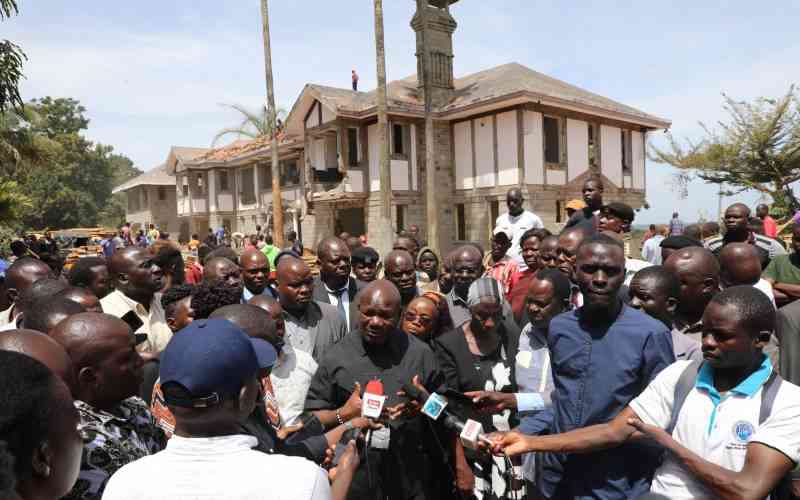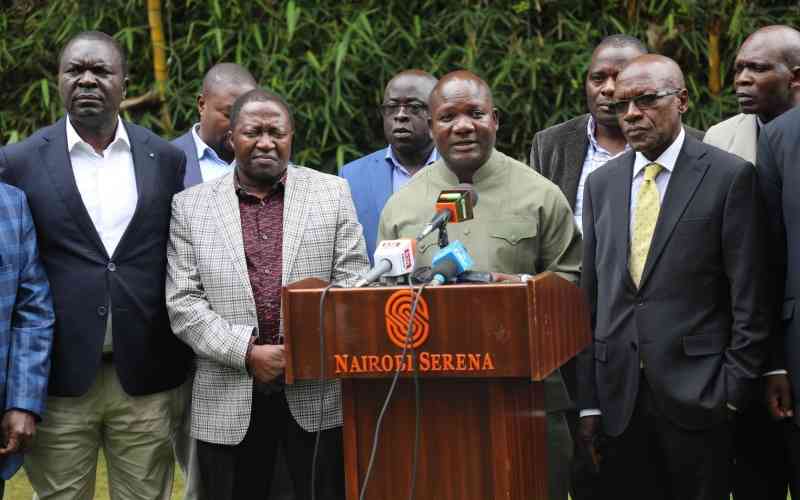- Details
- East Africa
- 744
The Kakamega county government is contemplating moving to court to sue the state over the ongoing demolitions in Milimani estate.
Governor Fernandes Barasa said his administration will be seeking millions of shillings in compensation.
Speaking when he visited Milimani estate yesterday, Barasa said his administration was not consulted by the national government over the demolitions.
“We are an interested party in this matter because part of this land belongs to the defunct municipality and on that basis, the land is automatically under county government. We are going to be enjoined in a suit against the national government which has acted through the office of Regional Commissioner so that victims can be compensated,” said the governor.
He accused Western Regional Commissioner Irungu Macharia of aiding the demolition on behalf of the national government in contravention of court order.
“We were not part of the ongoing demolitions and we never authorized it, what is going on is on the mercies of the Regional Commissioner who is acting on behalf of the national government and we will be moving to court against what he has done," said the county chief.
The governor termed the demolition 'impunity of the highest order' after the Kakamega Law Courts issued orders stopping the exercise.
“We are going to court to stop the ongoing demolition and it is so unfortunate that the government has decided to act in contempt of court orders and decided to go on with the demolitions at night," said Barasa.
He termed the move by the national government a threat to devolution saying the demolition is selective and only county government buildings and those of private individuals are being targeted.
“The state has an ill motive, the demolitions are discriminatory because we are only seeing the county buildings being demolished and those that belong to the national government are being spared, this is a threat to devolution and violation of the Constitution,” said Barasa. By Bernard Lusigi, The Standard







